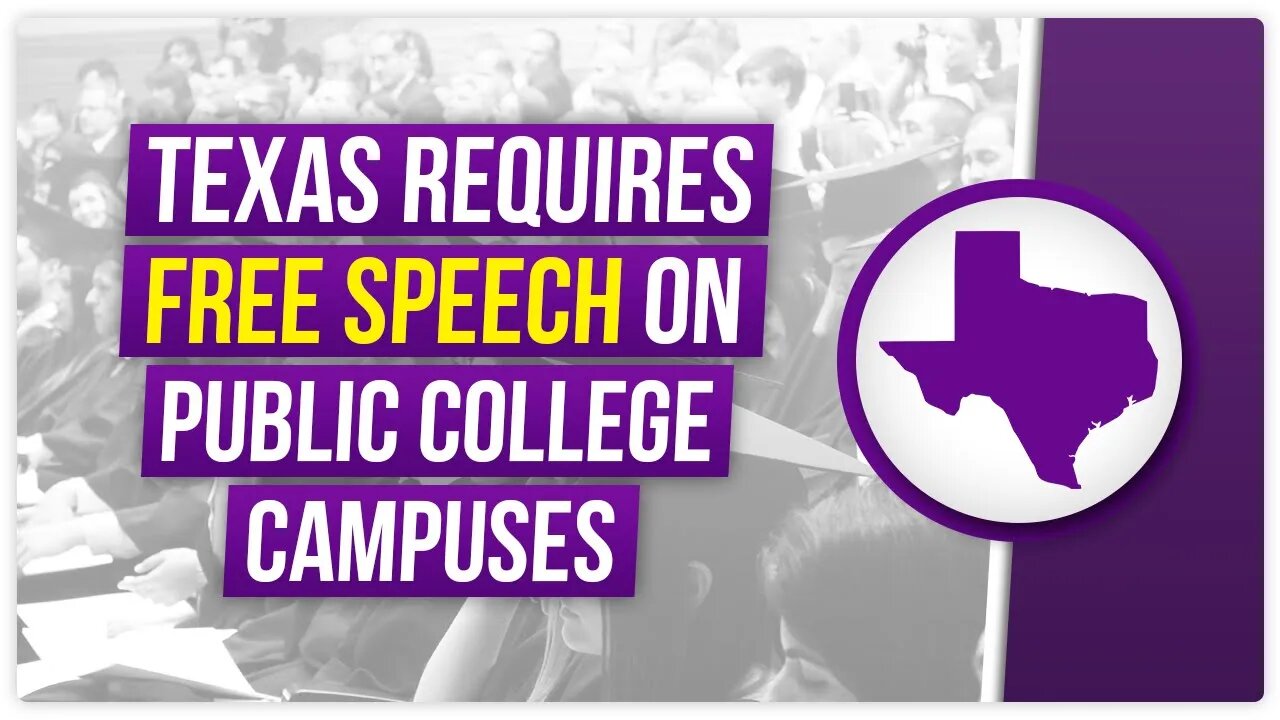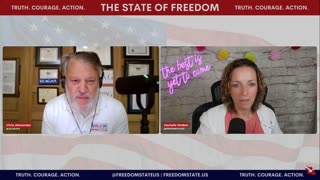Premium Only Content

Texas requires Free Speech on Public College Campuses - Internet Law Review
Texas approved a law that would require public colleges and universities across the state to come up with more uniform policies on free speech.
Senate Bill 18, authored by state Sen. Joan Huffman (R-Houston), would require universities to allow any person to engage in free speech activities on campus, create disciplinary sanctions for students who interfere with the free speech activities of others and establish a process for addressing complaints of potential free speech violations. It would still allow universities to put restrictions on the time, place and manner of free speech activities in order to prevent disruption to ongoing classroom activities.
Another encouraging aspect of the law is its mandate that new students, faculty, and staff be informed of these policies through their college’s orientation program. This important safeguard will help educate the campus community about their free speech rights so everyone may confidently exercise them.
The statute also aims to remove administrative hurdles student groups and faculty sometimes face when hosting outside speakers on campus. The bill importantly states that institutions may only consider content- and viewpoint-neutral criteria in determining fees to charge student organizations for the use of campus facilities. It also states that institutions “may not consider any anticipated controversy related to the event” when assessing fees.
This important provision will prevent schools from empowering critics to veto who may be brought to campus by threatening to create a disruption that would necessitate additional security. That form of heckler’s veto was prohibited by the U.S. Supreme Court in Forsyth County v. Nationalist Movement, in which the Court struck down an ordinance where government officials charged parade applicants security fees that were based on whether protests were anticipated. As the Court observed: “Speech cannot be financially burdened, any more than it can be punished or banned, simply because it might offend a hostile mob.”
When developing policies to determine when speech is constitutionally protected and when it crosses the line to an unconstitutional disruption, university officials should be very careful to avoid unintentionally suppressing protected speech like lawful protests. In crafting their policies, institutions should contact FIRE.
With the governor’s signature, Texas is the 17th state to enact campus free speech protections. FIRE states they are pleased to see the Lone Star State take a positive step to protect free speech.
Thanks for watching our videos, Like them, comment your suggestions, share with your friends & don't forget to subscribe and click on the bell Icon, So you never miss any update from us.
-
 16:41
16:41
UncivilLaw
1 year agoTake Care of Maya - Summary of Dec. 15 hearing (stream excerpt)
2K -
 2:00:15
2:00:15
Steven Crowder
4 hours agoTrump's Huge Meeting Shocks the World & the Media is Dumbfounded
182K149 -
 LIVE
LIVE
Viss
1 hour ago🔴LIVE - How to Consistently Win in PUBG!
127 watching -
 LIVE
LIVE
GloryJean
2 hours agoSniping & Dominating Solos 🖱️ 6.7 K/D
43 watching -
 1:40:15
1:40:15
Nikko Ortiz
2 hours agoLive - News, Politics, Podcast And Naaah Im Playin We Chillen
18.8K4 -
 1:02:10
1:02:10
VINCE
4 hours agoWhat Just Happened At The White House? | Episode 106 - 08/19/25
163K229 -
 LIVE
LIVE
LFA TV
6 hours agoLFA TV ALL DAY STREAM - TUESDAY 8/19/25
3,985 watching -
 1:18:04
1:18:04
The Big Mig™
5 hours agoTrump, NO More Voter Fraud It’s Time, LFG
17K10 -
 1:34:14
1:34:14
The State of Freedom
7 hours ago $0.42 earned#325 Running an America-First Campaign w/ Sammy Wyatt
48.6K2 -
 1:50:16
1:50:16
Dear America
4 hours agoTrump Calls Putin MID-MEETING With World Leaders!! Did Trump just END THE WAR?!
105K66